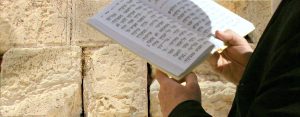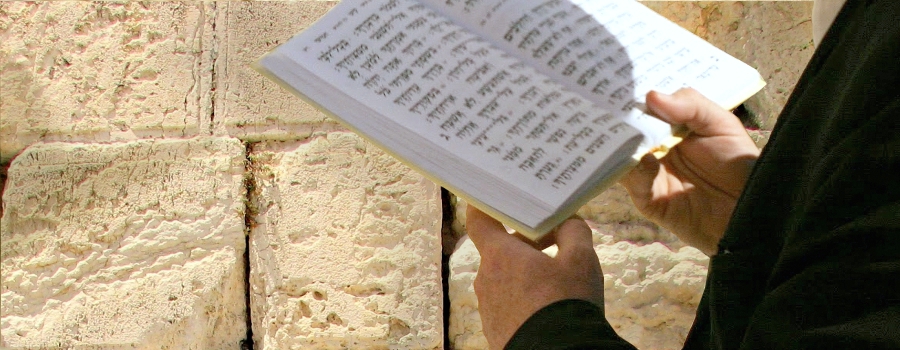
Question: What should one do if, mistakenly, he recited v’sein tal umatar livrachah after Succos but before the evening of December fifth?
Discussion: Although in Eretz Yisroel they have been reciting v’sein tal umatar livrachah since the evening of the seventh of Cheshvan, outside of Eretz Yisroel we do not ask for rain until the Maariv prayer of the fifth of December. This is because Eretz Yisrael, which is more elevated than other lands and does not have enough natural bodies of water to irrigate the land, requires much more rain than other countries{1}. If, however, one mistakenly recited v’sein tal umatar outside of Eretz Yisroel after Succos but before the evening of the fifth of December, he need not repeat his Shemoneh Esrei{2}. It is true that had he made this very mistake during the summer months and recited v’sein tal umatar—he would be required to repeat Shemoneh Esrei, but making that mistake anytime after Succos up until the fifth of December does not necessitate a repetition of Shemoneh Esrei. This is because we consider it premature to pray for rain before December fifth, but still, the period between Succos and December fifth is considered part of the “rainy season,” unlike the summer months, when rain is not welcome at all.
Question: Why do some people say morid ha-gashem with a kamatz under the gimmel, while others pronounce it with a segol under the gimmel—ha-geshem?
Discussion: The Hebrew word for rain is “geshem,” with a segol under the gimmel (and under the shin). Like many other words of comparable structure—two syllables, both vocalized with a segol (e.g., eretz, kesef, eved, etc.), the first segol is changed to a kamatz when the word appears at the end of a Biblical phrase{3} or sentence.
The correct pronunciation of the word ha-geshem or ha-gashem, therefore, depends on its location within the second blessing of Shemoneh Esreh. If the sentence—which begins with the words atah gibor—ends with the words mashiv ha-ruach u’morid ha-g_shem, then ha-gashem is correct. If, however, the phrase is part of a longer sentence which ends with the words be’rachamim rabim, then the correct pronunciation is ha-geshem.
In all of the old siddurim which were published hundreds of years ago, the word is written as ha-geshem with a segol. While more recently many publishers changed the vocalization and printed ha-gashem instead{4} —and some poskim maintain that ha-gashem is the correct pronunciation{5} —most poskim{6} hold that the correct way to pronounce the word is ha-geshem, and this is how most contemporary siddurim print that word.
Question: What should one do if he wishes to daven on behalf of a sick person, but he does not know the name of the sick person’s mother{7}?
Discussion: The father’s name should be used instead{8}. If the father’s name is also unknown to him, then the family surname should be mentioned{9}.
A mother davening on behalf of her child should not mention her own name. Instead, she should say only “my son/daughter” followed by the child’s name{10}.
Question: Does one fulfill his obligation of reciting Kerias Shema if he fails to pronounce each word correctly according to the rules of dikduk (Hebrew grammar)?
Discussion: Chazal attach great significance to pronouncing the words of Kerias Shema correctly, going as far as to say that “one who is particular about reading Shema correctly will be rewarded with a ‘cooled down’ Geheinom{11}.” Still, Shulchan Aruch rules that b’diavad one fulfills his obligation of Shema even if he was not particular to pronounce each word correctly (e.g., he did not correctly accent each syllable), as long as he clearly articulated every single word and every single letter.
In particular, Chazal were concerned about words whose last letter is the same as the first letter of the next word. In the words bechall levavecha, for example, the letter lamed is both at the end of bechall and at the beginning of levavecha. Both lameds need to be clearly and distinctly pronounced, necessitating a slight pause between the two words; otherwise, the two words will sound like one long word—bechallevavecha. The same holds true for al levavchem, va’avadetem meheirah, and many others{12}.
It is interesting, though, that while Chazal specifically single out bechall levavecha as one of the word combinations where a pause is necessary, this particular pause must be extremely brief; otherwise, one runs afoul of a different grammatical rule: These two words are connected with a makaf, a hyphen, which means that they are supposed to be read together with no pause between them. Is this not a contradiction? On the one hand, a pause is necessary to separate the two lameds, while on the other hand, the two words are supposed to be read together{13}.
The solution is not to pause fully and leave a space between these two words (like we would between similar combinations, e.g., va’avadetem meheirah), but rather to leave a hair’s-breadth between them—enunciating both lameds clearly and accenting the second word, levavecha{14}. One would be well advised to practice reading these words in advance, so that when he recites Kerias Shema the correct pronunciation will come easily{15}.
1. See Taanis 10a, Sefurno, Devarim 11:11 and Magen Avraham 117:1.
2. This issue is widely debated among the poskim: some require repeating the Shemoneh Esrei while most do not. Although Mishnah Berurah 117:13 and Beiur Halachah, s.v. hatzrichim, recommends that one repeat the Shemoneh Esrei as a tefillas nedavah (a conditional, voluntary prayer), this recommendation should be followed only by those who are sure that they can concentrate properly for another Shemoneh Esrei. Since most people cannot, it is better for them to rely on the majority of poskim who do not require the repetition of Shemoneh Esrei at all in this case.
3. Most often the end of a phrase is indicated by an esnachta or a zakef katan. 4. See Minhag Yisrael Torah 114:1, which explains that the original change was implemented by the maskilim.
5. Igros Moshe, O.C. 4:40-15; Rav Y.S. Elyashiv (Peninei Tefillah, pg. 145).
6. Levushei Mordechai 4:213; Rav Y.Y. Kanievsky (Orchos Rabbeinu, vol. 1, pg. 213); Rav Y. Kamenetsky (Emes l’Yaakov al ha-Torah, Bereishis 3:19); Rav Y.Y. Weiss (quoted in Ishei Yisrael 23:25); Rav S.Z. Auerbach (Halichos Shelomo 1:8-14); Az Nidberu 12:28; Teshuvos v’Hanhagos 1:81.
7. There are several early sources that imply that the mother’s name should be used when praying on behalf of an ill person; see Rashi, Shabbos 66b, s.v. bishma and Maharshal, ibid. See also Da’as Torah, O.C. 119:1, who quotes a Zohar in Parashas Shemo146s that the father’s name is not used since we are not always positive about the true identity of the father. Other reasons mentioned for this custom: 1) Based on the verse in Tehillim where King Dovid prays for himself by saying: Ani avdecha ben amasecha (Teshuvos Zekan Aharon 1:11); 2) In order not to embarrass a person who has a non-Jewish father (Teshuvos Gevul Yehudah, O.C. 2)
8. See Aruch ha-Shulchan, O.C. 119:1, who says that even when the mother’s name is known, the father’s name may be used. See also Nitzotzei Aish, pg. 861, quoting Rav C. Kanievsky.
9. Orchos Rabbeinu 1:218, quoting Chazon Ish.
10. Rav C. Kanievsky (Ishei Yisrael 23, note 189).
11. See explanation of this concept in Mishnah Berurah 62:2.
12. O.C. 61:20.
13. In addition, if these two words are read separately without the makaf, then the proper vocalization is bechol with a cholom, and not bechall with a kamatz.
14. Mishnah Berurah 61:33.
15. A good start is to read and listen to Kuntress Shema B’ni, a guide to grammatically correct pronunciation of Kerias Shema, with an audio companion to the text (Rabbi S. Hershkowitz, Toronto, 2001).
Weekly-Halacha, Text Copyright © 2012 by Rabbi Neustadt, Dr. Jeffrey Gross and Torah.org.
Rabbi Neustadt is the Yoshev Rosh of the Vaad Harabbonim of Detroit and the Av Beis Din of the Beis Din Tzedek of Detroit. He could be reached at [email protected]


